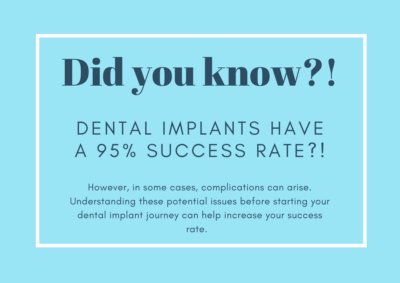What is a dental implant?
I’m sure you’ve heard the term before but what is it exactly? A dental implant, also known as teeth implant, is a screw like anchor that’s used as an artificial replacement for a natural tooth root. The screw is made of materials that are compatible with the human body, such as titanium. By attaching to the jawbone and gum tissue, they provide a stable base for artificial replacement teeth, such as dental crowns, bridges and dentures.
A Dental implant can be used to replace a single tooth or several teeth, or to support partial or full dentures. Implants and crowns remain inside the mouth and do not require any adhesives to hold them in place.

The cost of dental implants will vary depending on several factors, such as; how many teeth need to be replaced and whether you require a bone graft or sinus lift. The average price of a dental implant in New Zealand, including the crown is around $5000. If you need addition bone grafting, sedation or sinus lift this price increases.
Tooth implants have many benefits over alternative false teeth options. For example:
- They longer (if cared for with good Oral Hygiene habits)
- They prevent bone loss
- They’re sturdier than bridges or dentures, so patients can eat hard foods
- They feel like natural teeth
Dental implant treatment can take 3 – 6 months from start to end and follows a three-step process:
- At Tulip Dental we believe that a specialist in Oral Surgery should place the screw portion of your implant as they are specifically trained in this field. We will refer you to the specialist who will place the implant into the jaw. It will take 3 to 6 months for the implant to fuse with the jawbone. This process is crucial for the success of your tooth implant.
- Upon returning to your specialist, the implant is uncovered and an extension called a post is attached. Once the gum has healed around the post, the implant and post act as the foundation for the new tooth.
- Finally, you return to Tulip Dental and a crown will be made to best suit your natural teeth, considering factors including size, shape and colour. Once completed, the crown is attached to the implant post and you can enjoy your beautiful new smile!
If you do not have any serious medical conditions, do not have periodontal disease and do not smoke, you will most likely be eligible for a dental implant. If you are unsure, book a consult at Tulip Dental or advise any of the clinicians at your next appointment that you’re interested in this option. Discussing your candidacy for teeth implants with your dentist can provide further clarity.
One of the benefits of going overseas for dental implants (to Thailand for example) is that it tends to be cheaper. Unfortunately, these reduced costs also tend to come with lower quality materials and questionable infection control, which increases your risks of infection and outcome. Specialist Oral Surgeons in New Zealand go through three additional years and are consistently monitored to ensure quality care.
Once healed, dental implants should be painless and comfortable. Immediately after surgery, however, discomfort and mild pain is expected to last up to a week. Your dentist may prescribe you something for the pain and to avoid infection; otherwise, over-the-counter painkillers can help to manage the pain.
If cared for correctly, your dental implant should last a lifetime. Once an implant is placed strict Oral Hygiene should be followed including 6 monthly appointments with our hygienist to ensure that there is no infection from bacteria. The artificial replacement tooth attached, however, be it a dental crown, bridge or denture, does have a lifespan, which is generally between 10-15 years depending on how well it is cared for.
The most common alternatives for dental implants include:
- Removable partial denture (acrylic or metal)
- Removable complete denture (acrylic or metal)
- Tooth-supported fixed bridge
The risks associated with implant treatments are preventable. For example, dental implants can fail due to peri-implantitis, which is a form of gum disease that impacts the implant. However, peri-implantitis can be prevented with proper care, including brushing, flossing, and regular appointments with your dentist. Some patients may have a higher risk of contracting peri-implantitis, for example those with a smoking habit, poor plaque control or pre-existing chronic periodontitis. That is why we don’t recommend implants for everyone.
Read our latest blog on the most common reasons implants fail and how to avoid this

Ready to make an appointment
